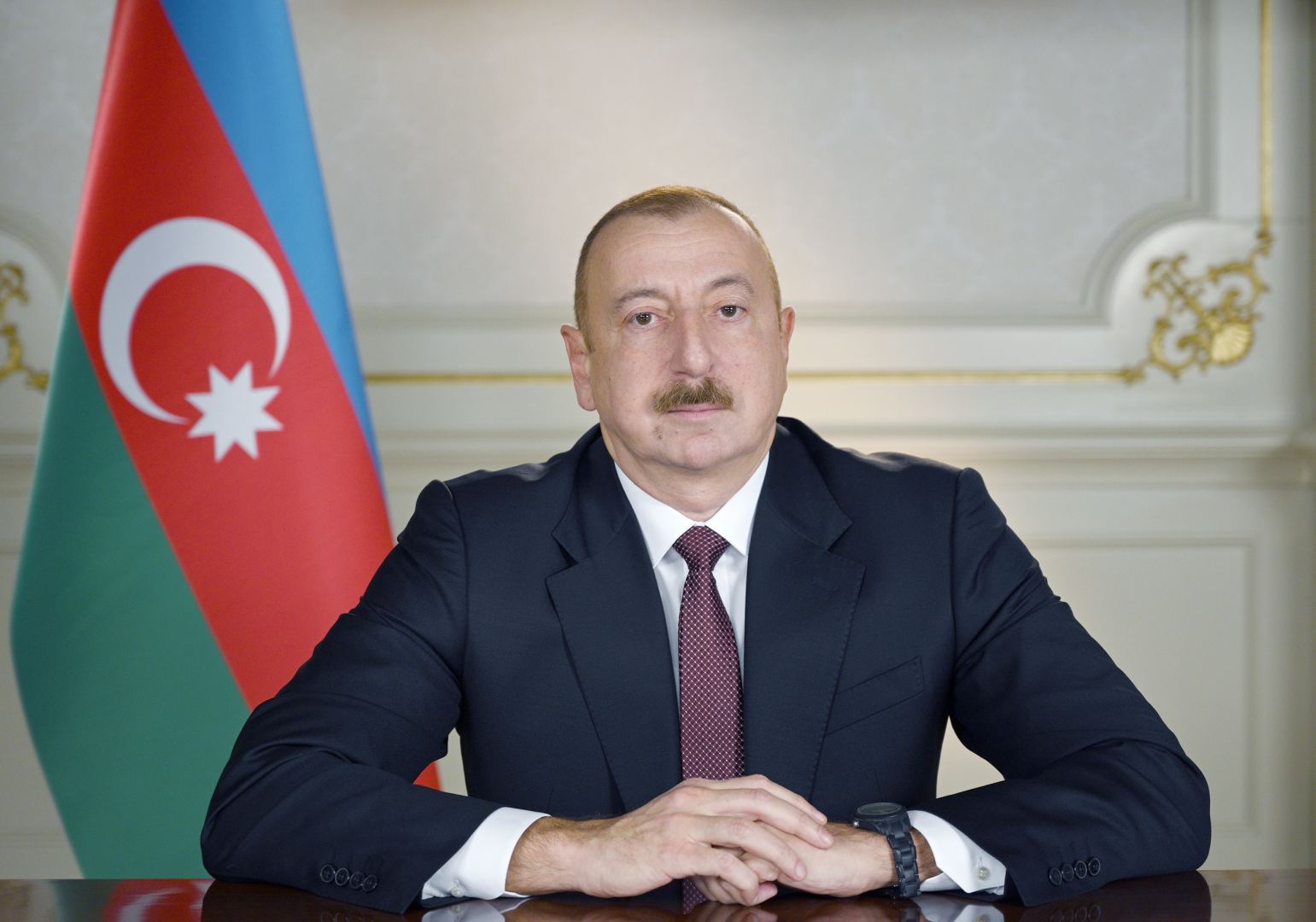BAKU, Azerbaijan, Sept. 24
Trend:
Azerbaijan, itself, enforced the implementation of the abovementioned UN Security Council resolutions, probably, it was the first case in the world since the establishment of the UN, President of the Republic of Azerbaijan Ilham Aliyev said in a speech presented during the annual General Debate of the 76th session of the United Nations General Assembly at the level of heads of state and government, Trend reports.
"While some resolutions of the Security Council are implemented within days, in our case they remained unfulfilled for 27 years, which is a clear manifestation of double standards. There is a need to join efforts to elaborate mechanism of implementation of the UN Security Council resolutions in order to avoid selective approach.
The OSCE Minsk Group was established in 1992 with the aim to find resolution to the conflict between Armenia and Azerbaijan. It could be possible for the OSCE Minsk Group Co-Chairs to accomplish their task if they would take resolute actions for compelling Armenia to end its military aggression against Azerbaijan. Throughout the conflict, Armenia with its attitude and actions demonstrated that its sole aim was to maintain the status-quo and consolidate the occupation. On many occasions I raised the necessity of imposing sanctions on Armenia. Regretfully, there was no international sanction imposed on Armenia to enforce the implementation of the UN Security Council resolutions.
In 2018, the Kocharyan-Sargsyan regime of war criminals was overthrown in Armenia. We had some hopes that the new government of Armenia would seriously engage in negotiations. We were ready to reciprocate any positive signal coming from Armenia. 2018-2019, it was one of the calmest periods in the former line of contact. However, the regime replacement in Armenia was not followed by real changes on the ground in spite of Azerbaijan’s positive actions. The new government of Armenia also opted for the continuation of occupation instead of peaceful neighborhood with Azerbaijan.
During the last 2 years of the conflict, Armenia deliberately destroyed the negotiation process. The Government of Armenia made a number of provocative statements and actions like saying "Karabakh is Armenia, and period" and "Not an inch of occupied land back". The then defense minister of Armenia openly threatened Azerbaijan with new aggression and occupation of new territories. Armenia put forward unacceptable and groundless so-called seven conditions and demanded to change the negotiations format, to start from the "zero point" and to involve the puppet regime established by Armenia in the occupied territories in negotiation process. Attempt by Armenian government to change the format and substance of negotiations was unpleasant surprise for the OSCE Minsk Group Co-Chairs, whose efforts were paralyzed by irresponsible and dangerous actions of Armenia.
Furthermore, in gross violation of international law, including Geneva Conventions, Armenia was blatantly implementing the policy of illegal settlement of people mainly from Middle East with Armenian origin in the occupied territories of Azerbaijan. Encouraged by the long-lasting sense of impunity, Armenia was also announcing construction of new roads from Armenia to occupied territories to further consolidate the result of its aggression and speed up the illegal settlement.
In July 2020, Armenia perpetrated military provocation along the state border with Azerbaijan. As a result of the artillery strike inflicted on Azerbaijan’s Tovuz district, 13 military servicemen and civilians were killed.
Later in August last year, Armenian sabotage group attempted to penetrate through the former line of contact to commit terror acts against Azerbaijani military servicemen and civilians but it was successfully neutralized.
In my statement at the General Debate of the 75th Session of the UN General Assembly on 24 September last year, I had warned that, "hostile, Azerbaijanohobic statements and provocations of Armenian leadership demonstrate that Armenia is preparing for a new aggression against Azerbaijan."
Three days later on the 27th September last year, Armenia launched a large-scale attack against military positions and civilians of Azerbaijan. In response, Azerbaijan, using its inherent right of self-defense as enshrined in the article 51 of the UN Charter, started a counter-attack on its own territories against Armenia.
During 44 days, armed forces of Armenia heavily shelled districts and cities situated along the frontline, namely Aghdam, Aghjabadi, Beylagan, Dashkasan, Fuzuli, Goranboy, Tartar. Armenia also fired at Ganja, Barda, Mingachevir, Gabala, Siyazan, Khizi and other cities situated far away from the former frontline. One of missiles was intercepted by Azerbaijani Air Defense Forces in Khizi, close to Baku, which shows that the capital city Baku was also target of Armenian missile attack. Armenia was using ballistic missiles, like Scud and Iskander-M, as well as forbidden white phosphorus and cluster munitions. These war crimes of Armenia resulted in more than 100 civilians, including 11 children being killed, more than 450 wounded. More than 12,000 civilian infrastructures, including private houses in Azerbaijan have been destroyed or severely damaged.
Abided by the fundamental principle of international humanitarian law on the distinction between combatants and civilians, Azerbaijan never reciprocated Armenia’s vicious war crimes by targeting civilians.
Armenia also recruited mercenaries and foreign fighters from abroad and deployed them against Azerbaijan.
During 44-day war Azerbaijan liberated a large part of occupied territories, including cities of Jabrayil, Hadrut, Fuzuli, Zangilan, Gubadli and Shusha. In total more than 300 cities and villages were liberated on the battlefield. Armenia had to sign an act of capitulation on 10 November 2020. Accordingly, Armenia was obliged to withdraw its troops from the remaining part of Azerbaijan’s territories, namely Aghdam, Lachin and Kalbajar regions. Azerbaijan, itself, enforced the implementation of the abovementioned UN Security Council resolutions, probably, it was the first case in the world since the establishment of the UN," the head of state said.






